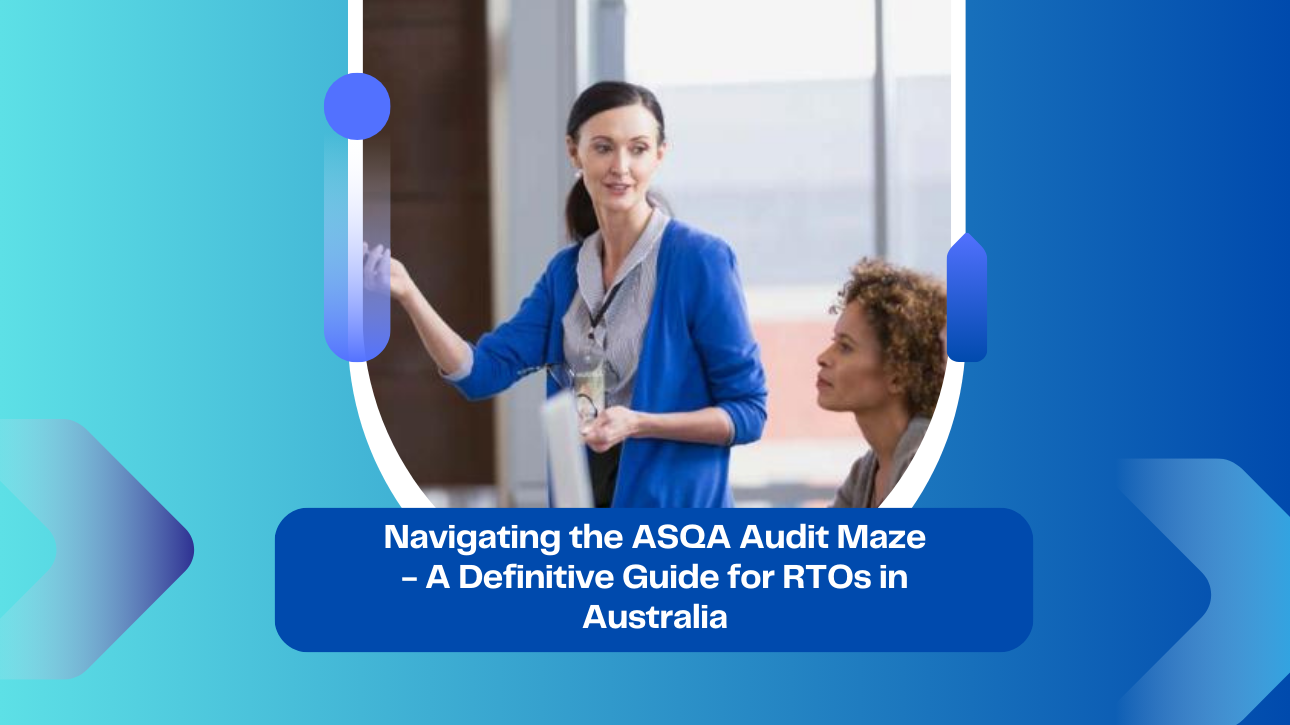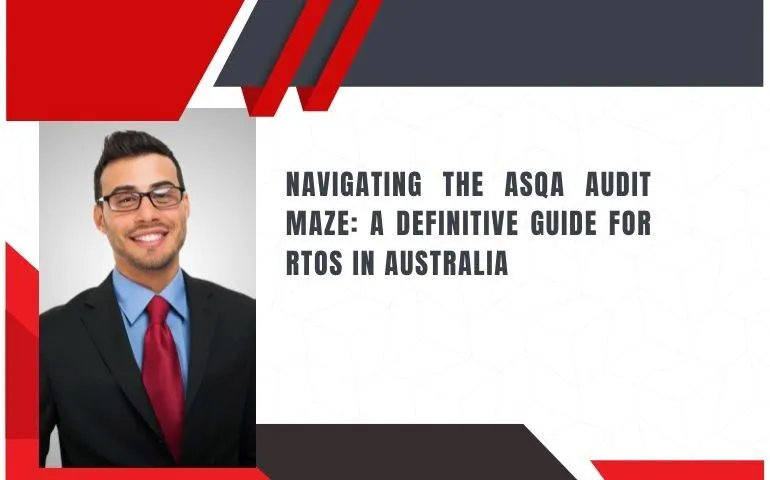
We recently hosted an online webinar with VET industry experts John Price and Ben Thakkar related to VET Sector compliance. Here’s the valuable information they shared with the participants.
Hello, RTO comrades across Australia! Does the mere mention of an ASQA audit make your palms sweaty and your heart race? You’re not alone in this boat. But what if we told you that ASQA audits could actually be a catalyst for positive change and growth in your organisation? Intrigued? Well, grab a cuppa and settle in, because we’re about to demystify the ASQA audit process, inspired by a recent webinar from VET Resources.

Gone are the days when ASQA audits were seen as punitive exercises designed to catch you out. The modern approach to audits is much more collaborative and constructive. It’s an opportunity to build a meaningful, professional relationship with your auditors, one that’s rooted in mutual respect and the shared goal of elevating the quality of vocational education and training (VET) in Australia.
Before you can effectively prepare for an audit, you need to understand why it’s happening in the first place. Is it a routine check, a response to a specific complaint, or perhaps related to a new course you’re offering? Knowing the reason for the audit can help you tailor your preparations and responses, making the entire process more efficient and less stressful.
The pre-audit phase is crucial. This is when you’ll be asked to submit various types of data, including student enrolment figures, course completion rates, and more. This information allows the auditors to get a sense of your RTO’s operations before they even set foot in your office. So, make sure your data is accurate, up-to-date, and readily accessible.
Let’s not forget that auditors are people too. Establishing a good rapport with them can make the audit process smoother for everyone involved. Open and honest communication is key. If you have questions or need clarification on something, don’t hesitate to ask. A good auditor will appreciate your proactive approach and willingness to engage.
Compliance is the baseline; it’s the minimum standard you need to meet. But why stop there? Use the audit as a springboard for continuous improvement. Take the feedback on board, identify areas where you can do better, and then implement those changes. This proactive approach not only impresses auditors but also leads to better outcomes for your students.
Continuous improvement isn’t a one-off task; it’s an ongoing cycle. It involves regularly reviewing and updating your training and assessment strategies, engaging with industry stakeholders for feedback, and staying abreast of regulatory changes. This cycle ensures that your RTO remains compliant and continues to offer high-quality training that meets the needs of both students and employers.
Compliance in the VET sector is a complex beast, governed by a myriad of rules, regulations, and standards. Understanding these requirements is crucial for a successful audit. This includes everything from course durations and training packages to AQF qualifications and more. The key is to stay informed and up-to-date, so you’re never caught off guard.
ASQA audits don’t have to be a source of stress and anxiety. With the right mindset and preparation, they can be a valuable tool for improving the quality of your RTO’s training programs. So, take a deep breath, embrace the audit process, and use it as an opportunity to shine.
Ready to dive deeper into the world of RTO compliance and quality assurance? VET Resources is your go-to platform for all things related to vocational education and training in Australia. Check out our extensive range of resources, tools, and webinars designed to help you navigate the complex landscape of VET compliance. And don’t forget to subscribe to our [YouTube channel] for even more invaluable insights!
1. What exactly is ASQA?
ASQA stands for the Australian Skills Quality Authority. It’s the regulatory body responsible for ensuring the quality of VET services across Australia.
2. How often do audits take place?
The frequency of audits can vary greatly depending on various factors, including your RTO’s compliance history, the types of courses you offer, and more.
3. What are the consequences of failing an audit?
The penalties for failing an audit can be severe, ranging from financial fines to the loss of your RTO status. That’s why it’s so crucial to be well-prepared.
4. How can I prepare my RTO for an upcoming audit?
Preparation is key. This involves a thorough review of all your training materials, assessment tools, and internal processes to ensure they meet the relevant standards and guidelines.
5. Can audits actually benefit my RTO?
Absolutely! An audit is a valuable opportunity for feedback and improvement. It can help you identify weaknesses in your operations and provide a roadmap for future success.
Disclaimer:
The information presented on the VET Resources blog is for general guidance only. While we strive for accuracy, we cannot guarantee the completeness or timeliness of the information. VET Resources is not responsible for any errors or omissions, or for the results obtained from the use of this information. Always consult a professional for advice tailored to your circumstances.
Ben Thakkar is a Compliance, Training, and Business specialist in the education industry. He has held senior management roles, including General Manager, with leading Registered Training Organisations (RTOs) and Universities. With over 15 years of experience, Ben brings extensive expertise across audits, funding contracts, VET Student Loans, CRICOS, and the Standards for RTOs 2025.
Ben Thakkar
By submitting this form, you agree to the VET Resources Privacy Policy.